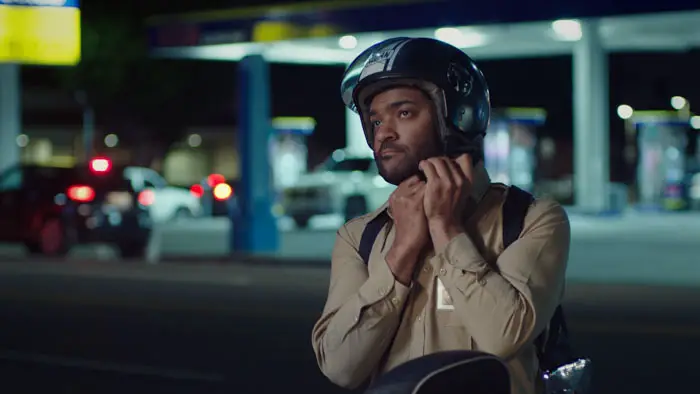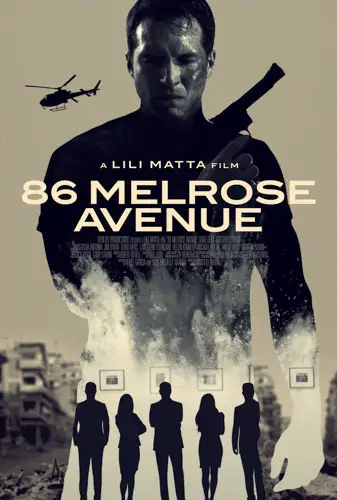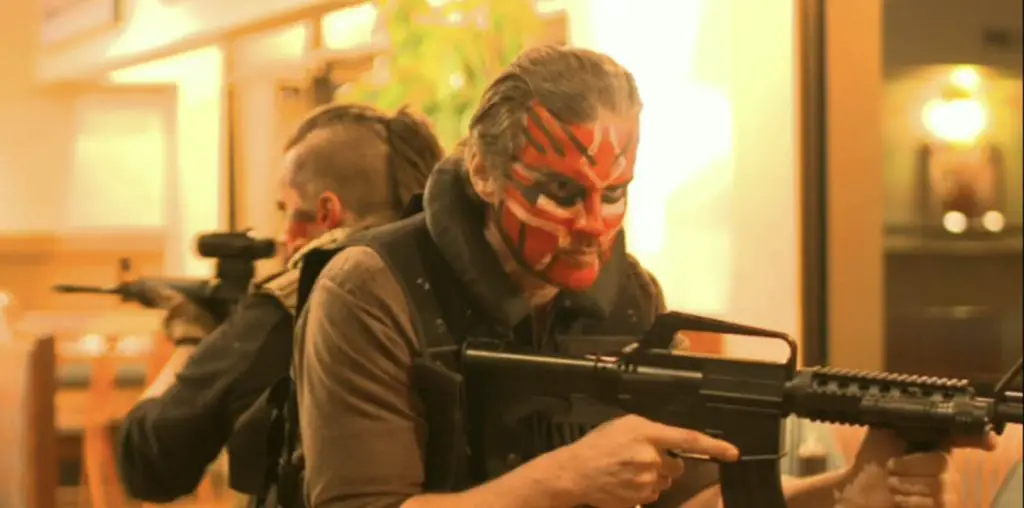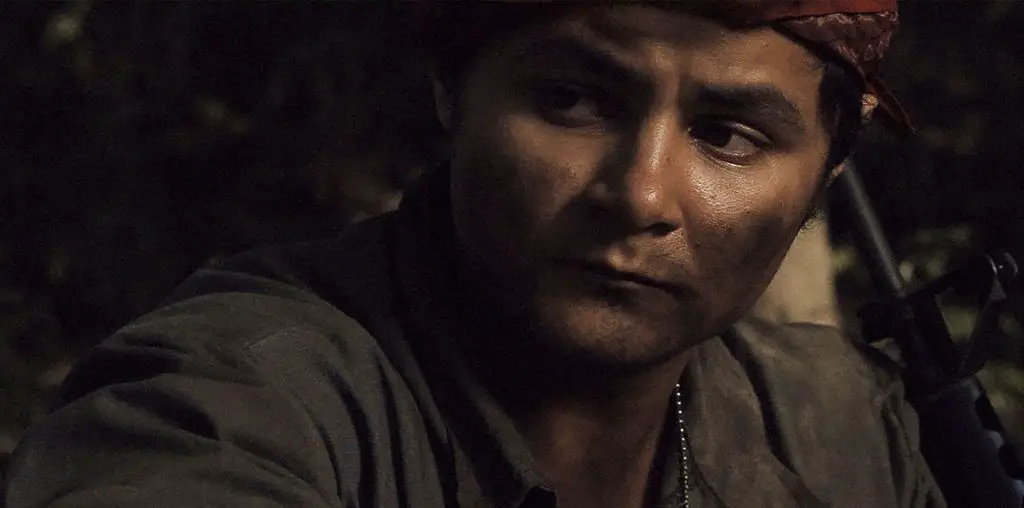
86 Melrose Avenue is a film about trauma packaged as a hostage thriller. Written and directed by Lili Matta, the film opens on Travis (Dade Elza), covered in blood, running from the police. Radio chatter warns that he is “armed and dangerous.” Then we flashback to an hour earlier when Travis and his wife Madeline (Kambra Potter) were entertaining a guest. The guest, Dallas (Jake Red), brings up Travis’s time in the military. He pushes the host with his opinions about military occupation and sacrifice. He asks to hear some “crazy stories” Travis has from his time in the armed forces. Travis snaps and shoots Dallas.
At the same time, several people congregate at the titular address. It is an art gallery, opened now as the owners wish to show art critics, attendees, and press photographer Nadia’s (Anastasia Antonia) latest exhibit. Now, back in the present, Travis is on the run and ducks into the gallery and holds all the patrons hostage. The police eventually show up and attempt to talk him down.
The most compelling part of 86 Melrose Avenue is its focus on each character’s history. For example, in the moments when Travis was screaming at his hostages about how they don’t understand his pain, Matta includes flashbacks to illustrate how each of us carries some kind of unbearable pain. This focus on everyone’s trauma gives the proceedings a certain gravity that would be missing otherwise.

“…Travis is on the run and ducks into the gallery, and holds all the patrons hostage.”
The film poses a lot more questions than it answers, but not in a good way. Matta’s script introduces so many possible themes that it’s hard to know which to focus on, especially because very little ever comes back around. The location of the art gallery is arbitrary, which poses the unfortunate question, “why is this even happening?” The characters often stop to discuss the photographs and their meaning, but the critiques and observations about art and expression never line up with anything else the filmmaker seems to be trying to say.
There is something missing too about the different ways conflict in the Middle East runs through 86 Melrose Avenue. Matta is Lebanese, as is Nadia. At the opening, Nadia meets Avi (Gregory Zarian), an Israeli who calls her “neighbor” and tries flirting with her. They talk briefly about Israel’s attack on Lebanon, and we later see a flashback where Avi’s father beats him for refusing to serve in the IDF. These themes come up enough to feel like it is meant to be building to something, but we never get there. It feels more than coincidental that Travis would be a veteran of US wars in the Middle East and that there is friction between Nadia and Avi about their home countries. However, Matta never materializes these connections, nor the shared trauma of these characters, in a meaningful way.
The film’s resolution is a long sequence of police questioning that begs the audience to have many questions. Why are these hostages being grilled about their relationships with each other? Why are the cops bringing up the art gallery owners’ drug use? Why does any of this matter?
I can see that Matta had a vision, but the filmmaker never decides on a message. For example, 86 Melrose Avenue ends with a statistic about gun violence in America which was confusing because the themes throughout seemed to be PTSD in veterans or the impact of trauma, especially in people like Nadia, who grew up in warzones. I spent most of the movie wondering what the writer/director’s intention was, and the inclusion of the statistic hammered home for me that Matta had a lot she wanted to say but wasn’t able to make it coherent.

"…Matta had a vision..."


